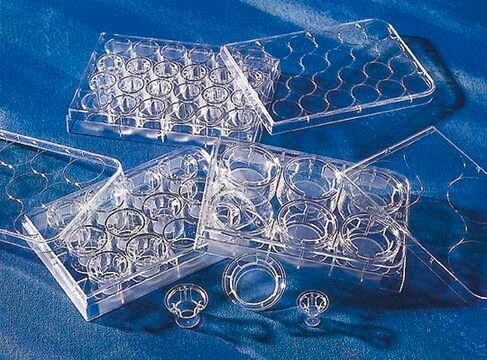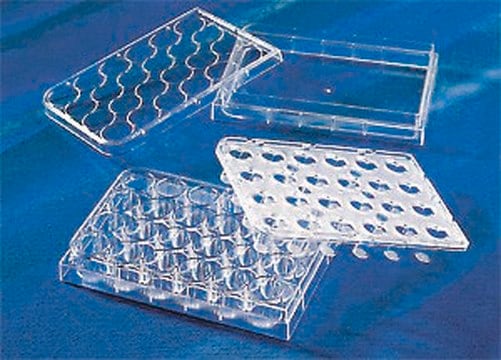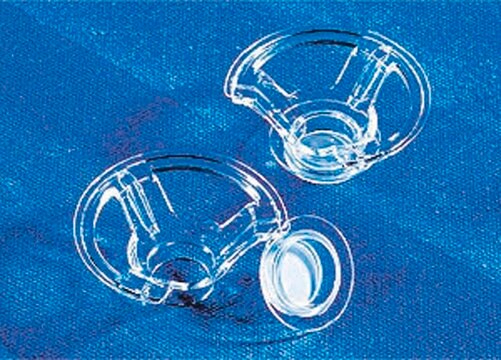CLS3464
Corning® Costar® 24 well plates
8.0 μm pore size, Tissue Culture (TC)-treated surface flat bottom clear polystyrene wells, round wells, clear plate, PET membrane, sterile, case of 48 ea, pack of 12 ea
About This Item
Recommended Products
Product Name
Corning® Costar® Transwell® cell culture inserts, TC treated, PET membrane, diam. 6.5 mm, pore size 8.0 μm, sterile
material
PET membrane
clear plate
flat bottom clear polystyrene wells
round wells
sterility
sterile
feature
lid
skirt
packaging
pack of 12 ea
case of 48 ea
manufacturer/tradename
Corning 3464
diam.
6.5 mm
membrane thickness × diam.
10 μm × 6.5 mm
size
24 wells
well working volume
0.6 mL
color
clear
pore size
8 μm
8.0 μm
binding type
Tissue Culture (TC)-treated surface
General description
Application
- Transwell assay to study the role of TGF-β-MTA1-SMAD7-SMAD3-SOX4-EZH2 signaling axis in hepatocellular carcinoma cells
- MTT Assay to study GAS5-mediated signaling in osteosarcoma cells
- tri-cultured neuroinflammation model
Features and Benefits
- 10 μm thick transparent polyester membrane
- Treated for optimal cell attachment
- Sterilized by gamma radiation Lids included TC-treated surface 0.33 cm2 cell growth area
- Can be coated with a diverse range of extracellular matrices (ECM) and basement membrane extracts (BME)
- Optical clarity enables clear visualization of cell outlines when observed under phase contrast microscopy
- Offers compatibility with histochemical stains and fluorochromes for various cell staining applications
Legal Information
Choose from one of the most recent versions:
Certificates of Analysis (COA)
It looks like we've run into a problem, but you can still download Certificates of Analysis from our Documents section.
If you need assistance, please contact Customer Support.
Already Own This Product?
Find documentation for the products that you have recently purchased in the Document Library.
Customers Also Viewed
Our team of scientists has experience in all areas of research including Life Science, Material Science, Chemical Synthesis, Chromatography, Analytical and many others.
Contact Technical Service


